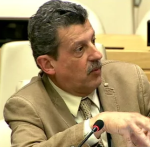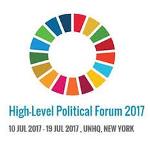Published on Sun, 2017-08-20 22:26
In the first four months of 2017, severe floods isolated hundreds of Peruvian towns, leaving thousands of families homeless and destroying over 100 bridges. The waters have swept away bridges and roads. The Amazon, Marañón, Ucayali and Napo rivers, in the Amazon region, are under red alert because owing to a critical level of flow and danger of overflow. According to the World Bank, damage to the environment has an economic cost of 3.9 percent of gross domestic product (GDP), and mainly affects the poorest populations. In spite of te high vulnerability to human-made natural disasters, the national Social Watch report finds tenacious resistance to more sustainable practices by those who argue that environmental regulation is an obstacle to economic growth and corporate profits. |
Published on Sun, 2017-08-20 22:23
The Armenian government seeks to liberalize socioeconomic and political activities in a framework of respect for human rights and gender equality, acknowledges the national Social Watch report. Over the past 15 years, the poverty rate has fallen from 51 percent to 26.5 percent, but the unemployment rate is unchanged, which remains one of the main factors driving labor migration: almost one in four families (23%) in Armenia has members outside the country, of which 20 percent are in Russia and 3 percent in Europe. The analysis of the Center for Development of Civil society concludes that despite a certain increase in per capita income, the current level allows families to cover only the costs of food and some utilities, since the state's minimum wage and various allowances do not take into account needs for medical care, education, vacation time or cultural activities. |
Published on Thu, 2017-08-17 10:17
“Social Protection is a Human Right. Every right has a right holder and a duty bearer. We know who the right holders are: every human being, particularly those more in need of social protection: The right to be protected and cared is a right of children, the elderly, the sick, the people with disabilities" said Roberto Bissio, coordinator of Social Watch, speaking on behalf of the Global Coalition for Social Protection Floors (GCSPF) in the side event: “Global Partnership on Universal Social Protection: Ending Poverty by 2030” held during the HLPF on July 10th. |
Published on Wed, 2017-08-16 12:33
In discussions at the UN about achieving Agenda 2030, it has become de rigueur to highlight the role of the private sector. It is often introduced as the discovery of the idea that private sector investment and financing is indispensable to achieving Agenda 2030. For developed country diplomats and their associated experts this new celebrity treatment appears to be an article of faith, at least during negotiations on economic matters in the UN. |
Published on Mon, 2017-08-07 11:04
Reflections on the 2017 United Nations High-Level Political Forum on Sustainable Development. In his opening remarks, the UN Secretary-General said that 20 years ago “there was the idea that globalization would not only increase global wealth, but that it would trickle-down and would benefit everybody in our planet”. He went on to describe that at the present time, “globalization and technological progress have dramatically increased global trade and global wealth. It is true that the number of absolute poor has been reduced and that living conditions have improved all over the world but it is also true that globalization and technological progress together have been factors in the increase of inequality”. |
SUSCRIBE TO OUR NEWSLETTER







